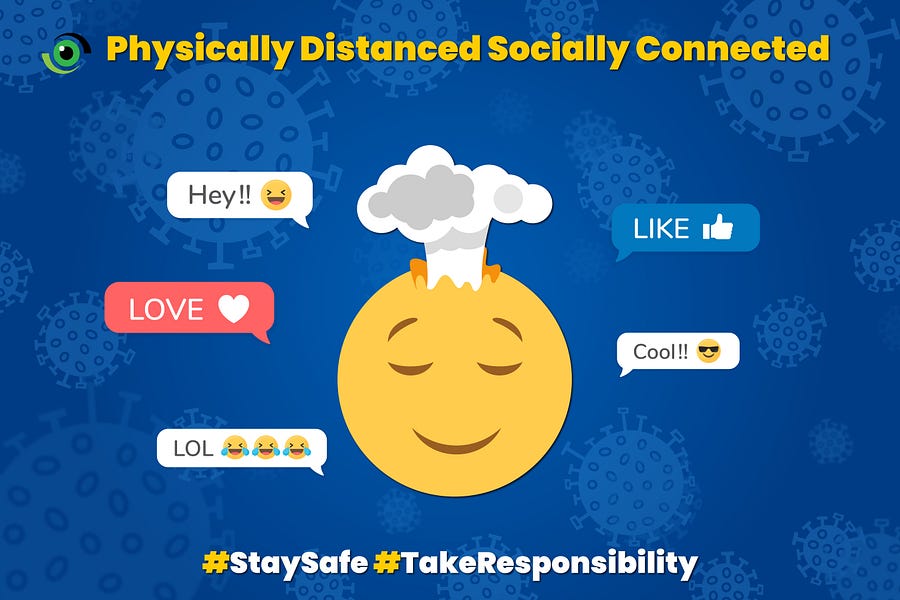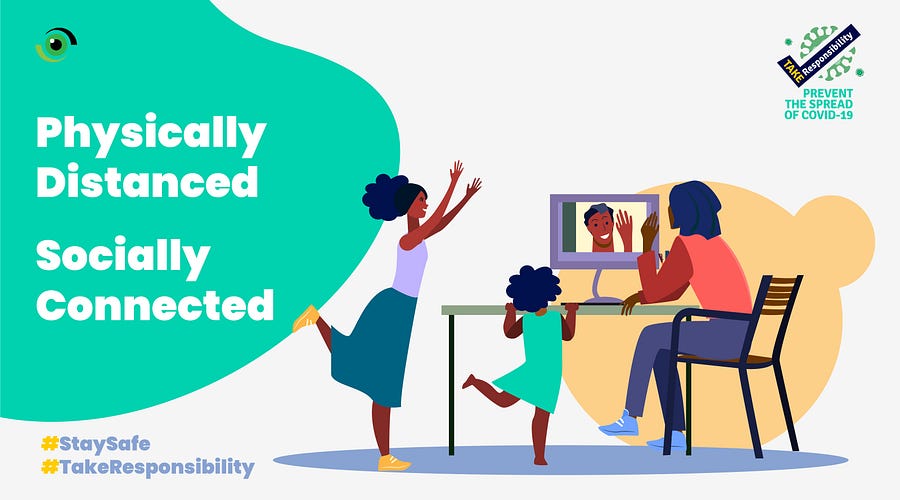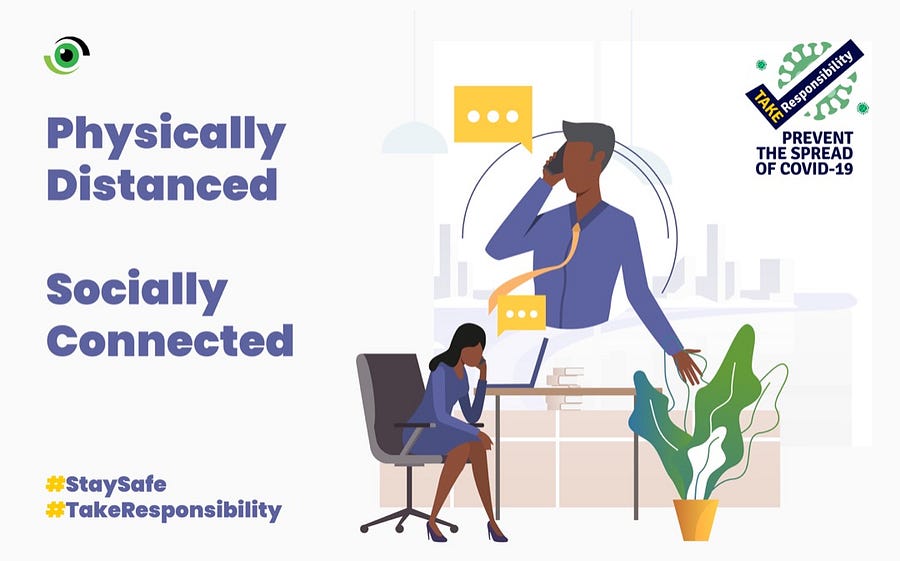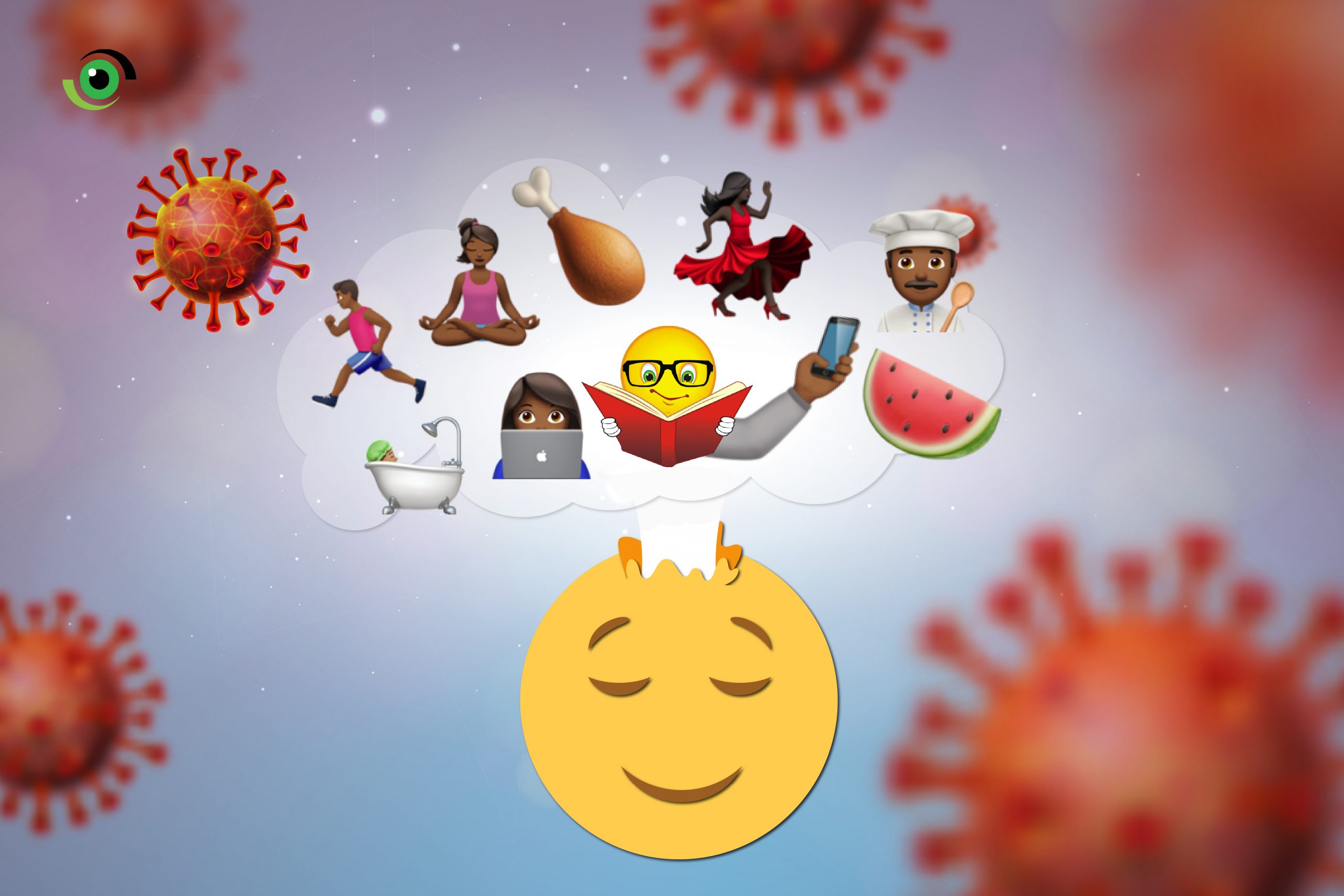In the past three months, millions of people around the globe have been urged to stay home and take various steps to protect themselves from the COVID-19 disease. As the virus slowly gains ground in Africa, there may be additional challenges on a continent where healthcare systems are already under strain, with limited access for large segments of the population. Social distancing will be difficult for many living in crowded urban areas, and stress, anxiety and hunger are likely to increase in the coming days and weeks.
A number of international organisations are urging governments to take additional measures to ensure the right information reaches vulnerable communities before case numbers increase to overwhelming levels. Following the presidential directive banning movement in Lagos, Ogun and the Federal Capital Territory, in addition to measures taken by several states to impose movement restrictions, experts are concerned that people of all ages, particularly those already living with depression, anxiety and similar conditions may start to struggle without support.
The constant stream of news reports about the outbreak understandably causes people to feel anxious or distressed. Quarantine measures and other restrictions such as social distancing can be particularly stressful and isolating, despite evidence that the less time people spend together, the better the chances of limiting the virus’ spread. While our daily routines and social interactions have been severely disrupted, there are many things we can do to nourish our minds, bodies, and souls in the coming weeks. Many people are exploring innovative ways to focus on wellness and help give their lives continued structure in these uncertain times. Here are a few helpful tips that we have gathered from various sources:
Stay connected
Social distancing during the COVID-19 outbreak does not have to mean socially disconnecting. We can stay connected via phone or video calls with friends and family members. Having a conversation and staying connected can help relieve sad or stressed feelings, research after the 2008 SARS pandemic in Hong Kong showed. This is a good time to reach out to loved ones and friends, close by and far away. There are multiple platforms, for the 56 per cent of Nigerians fortunate enough to have a smartphone and for those who can afford to buy data, to have virtual video calls, including WhatsApp, Skype, Google Hangout, and Facetime. But ordinary audio calls can also help maintain these connections.

Finding like minds to connect with online could also be helpful. Positive online communities, where you can make new friends, get inspired and chat about things you care about, can help you stay mentally healthy. You can try searching for groups involved in causes, music or TV shows you are passionate about. While connecting, talk about something other than Coronavirus. This can help stop every aspect of your life being taken over by it. If you find yourself worried or experience negative emotions, talk to someone you trust. A good number of people are staying home, so also connecting and perhaps reconnecting to your neighbours beyond hello and goodbye can also help you protect your mental health, and theirs.
Create a healthy routine
Having a routine even while staying at home helps your mind and body adjust and build resilience. Set a schedule for waking up, meals and bedtime. Resilience thrives with proper nutrition and rest. Maintaining a healthy lifestyle during this time is important to keep your immune system strong. This enables it to ward off illness and successfully fight the virus if you happen to contract it. This is not the time to self-medicate.
To create a good routine, get up and get dressed in the morning rather than staying in bed or in your sleeping clothes all day. This helps keep a sense of purpose. If you have the time, you can make a list of all those things you said you would do but never got around to, and fill your day with projects, especially if you are not actively working from home. It could be sorting out your wardrobe, starting a home project you have had in mind, learning a new craft, completing a course, cooking meals that you enjoy, or even just doing a family activity with your children. These tasks can make you feel productive and give you a sense of accomplishment. Build in movement into your day so that you are not glued to your phone and social media. You can do this through exercise, dancing to your favorite music, doing yoga, or even just talking a short walk. If you live with family, build in activities that can be done as a family but at considerable distance from each other. Keep your windows open to let in fresh air and get as much natural sunlight as you can.

Say no to tense situations at home
Having to stay in one space with other people for a long time, without outlets for time on your own, could naturally become frustrating and lead to tension. Globally, domestic violence hotlines have seen an increase in callers reporting abuse. If your living situation is difficult and dangerous, please don’t struggle in silence. Speak to someone you trust. Call a friend or a helpline. If you’re worried about being overheard, you could try texting or emailing. There are many helplines in Nigeria now, which offer text and online messaging support. You can also try to diffuse difficult situations by walking away from arguments until everyone starts to feel calm. If you and those you live with do not have any coronavirus symptoms, you could go outside for a walk.
Stay positive and informed
Seek information updates and practical guidance at specific times during the day from the Nigeria Centre for Disease Control (NCDC) website and social media handles as well as from the World Health Organisation (WHO) website and local health authorities’ platforms. Avoid listening to rumours that may make you feel more tense. Get information only from credible sources to help you distinguish facts from rumours. You can also debunk fake news and help stop its dangerous spread. Don’t just forward those “copied” and “forwarded as received” WhatsApp messages, also share the messages about what each person can do to stay healthy and prevent the virus from spreading. Stay positive and discuss experiences and feelings with loved ones.
Let us not forget to “be kind to one another”. There is plenty we can all do to reduce the stress on people around us. From offering food to the less privileged to calling on people who you suspect may be feeling lonely at this time. Humanity can go a long way with just a little bit of kindness.

Provide for less privileged Nigerians
The reasons for anxiety may differ through social classes. For the larger number of Nigerians, the reasons for anxiety may be as simple as not knowing where their next meal will come from or how they will cater for their loved ones. Around the world, governments have been urged to set up relief aid and funds for people in need but there’s still so much that should be done. In some countries hotels are being used to house homeless people. Here in Nigeria, the “Take Responsibility campaign” encourages everyone to do their best to help combat COVID19, including providing food and shelter to those who need it the most. This call isn’t only to the government but to everyone, from faith organisations to philanthropists, to the private sector, to each one of us.
Though apart, we are in this together
We are all in uncharted territory and this may seem scary. So far into the fight of COVID19, there is still so much that is not clear; about population immunity, about the prospects of a vaccine or a cure beyond the supportive treatment to alleviate symptoms which is currently offered. As researchers and others across the world rapidly seek answers to these questions, we can use the knowledge that reducing contacts between people reduces the overall number of opportunities for transmission. This is currently the only way to help protect people who are at high risk for severe COVID-19 disease. While social distancing may seem “completely strange” to many populations, particularly in Africa, It remains the most effective known strategy to delay and reduce the magnitude of the pandemic. The more thoroughly we ensure that we are socially distanced, for now, the sooner we can all be socially connected again.
How have you been protecting your mental health during the COVID19 stay at home order? Share with us in the comments, and on our social media platforms: @nighealthwatch on Twitter, and @nigeriahealthwatch on Facebook and Instagram.
For more resources on mental health support during this period, please see below:
https://www.mentallyaware.org/
https://www.nhs.uk/oneyou/every-mind-matters/coronavirus-covid-19-anxiety-tips/
https://www.nhs.uk/oneyou/every-mind-matters/coronavirus-covid-19-staying-at-home-tips/



Very insightful.
This is such a good piece and most appropriate for these times. Well done
This is interesting
Elated dance time I found this fantastic website! As a personal injury attorney, simplicity is in legal conversations is my style. Overjoyed to share with you my site , a space where we clarify personal injury law without the fuss. Explore, join the conversation, and let’s journey the venture together! Explore my site, and let’s decode personal injury law without the fuss.
https://amicuslegalgroup.com/chino-hills-personal-injury-lawyer/
The Overlap of Criminal and Civil Responsibility in Personal Injury Legal Cases e0d5f77